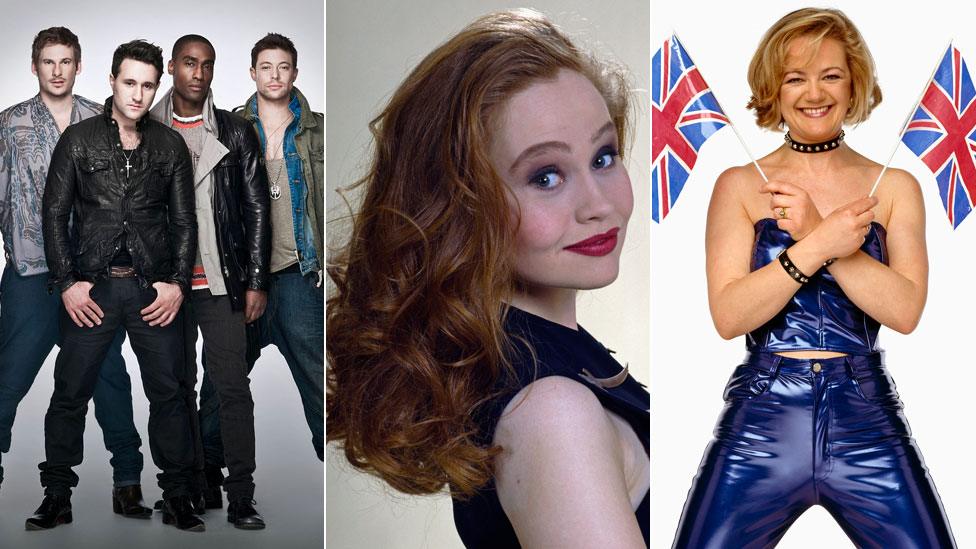Eurovision 2018: Chinese channel barred from airing contest
- Published
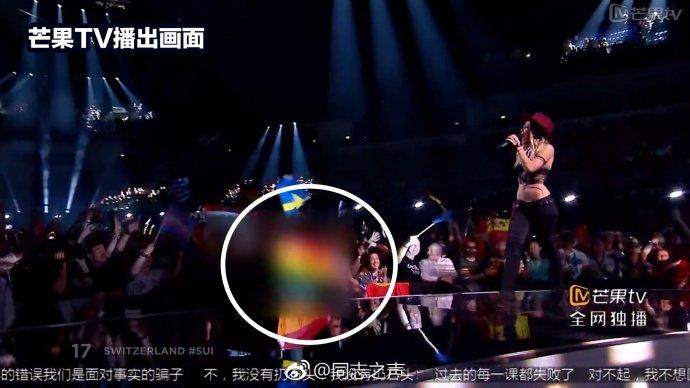
A screenshot from Mango TV shows a blurred rainbow flag during Switzerland's performance
The European Broadcasting Union (EBU) has barred one of China's most popular TV channels from airing the Eurovision song contest after it censored LGBT elements of the competition.
Mango TV was criticised on social media for apparently blurring rainbow flags and censoring tattoos during Tuesday's first semi-final.
It also decided not to air performances by the Irish and Albanian entries.
The EBU said the censorship was not in line with its values of diversity.
Ireland's Ryan O'Shaughnessy told the BBC what he thought of the EBU's move
"It is with regret that we will therefore immediately be terminating our partnership with the broadcaster and they will not be permitted to broadcast the second Semi-Final or the Grand Final," it said in a statement.
The performance by Ireland's Ryan O'Shaughnessy featured two male dancers enacting a gay love story, while Albanian singer Eugent Bushpepa is heavily tattooed.
Allow YouTube content?
This article contains content provided by Google YouTube. We ask for your permission before anything is loaded, as they may be using cookies and other technologies. You may want to read Google’s cookie policy, external and privacy policy, external before accepting. To view this content choose ‘accept and continue’.
Homosexuality was decriminalised in China more than two decades ago but conservative attitudes still prevail in many parts of the country.
Some activists say there has been a recent effort to sideline the LGBT community. Last month Chinese social media network Sina Weibo backtracked from a controversial gay content ban after a massive outcry.
In 2016 the Chinese authorities banned depictions of gay people on TV as part of a crackdown on "vulgar, immoral and unhealthy content". A number of Chinese gay dating apps have also been shut down.
There has also been a crackdown in China on tattoos and other sub-cultures. Media regulators have reportedly banned tattooed actors, external, and members of the Chinese national football team wore bandages over their arms and legs to conceal tattoos, external during a match in March.
A number of verified Weibo accounts shared still images of the censored performances.
One account, The Voice of Homosexuality, said the broadcaster's decision to remove references to homosexuality was a "major step backwards".
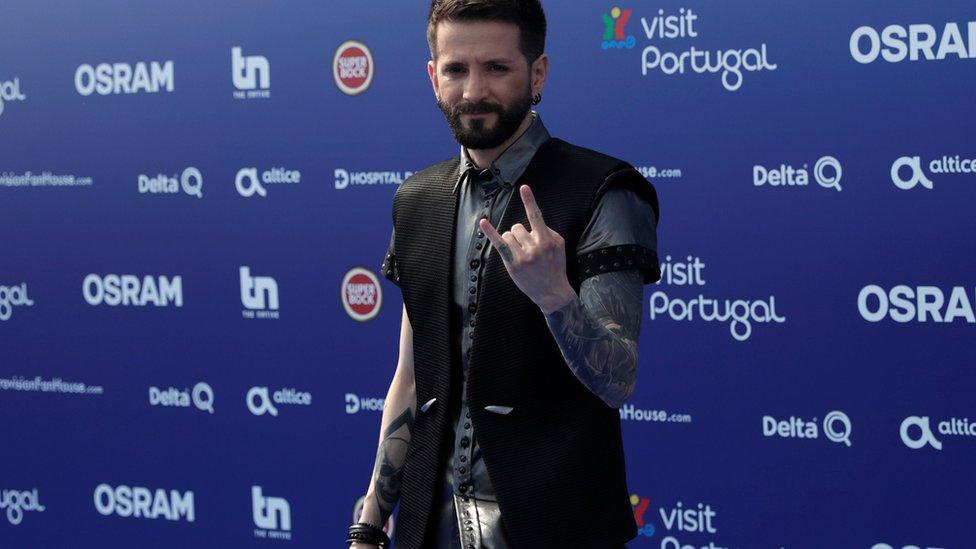
Albanian singer Eugent Bushpepa has a lot of tattoos
Other Weibo users called for people to "boycott Mango TV," and one user said they "absolutely won't be watching Mango TV next month".
O'Shaughnessy told the BBC that he welcomed the EBU's decision.
"From the very start we've said love is love - whether it's between two guys, two girls or a guy and a girl so I think this is a really important decision," he said.
"They haven't taken this lightly and I think it's a move in the right direction so I'm happy about it."
He will perform at the final in Lisbon on Saturday with a song about the end of a relationship. He was accompanied by two male dancers during the performance that was apparently censored by Mango TV.
Other countries to have reached the final include Australia, Denmark and Hungary.
- Published11 May 2018
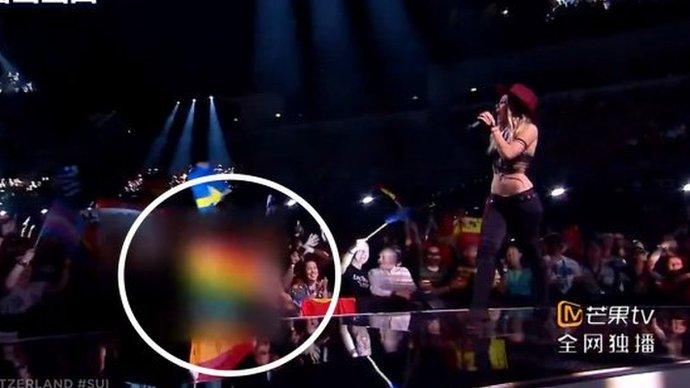
- Published10 May 2018
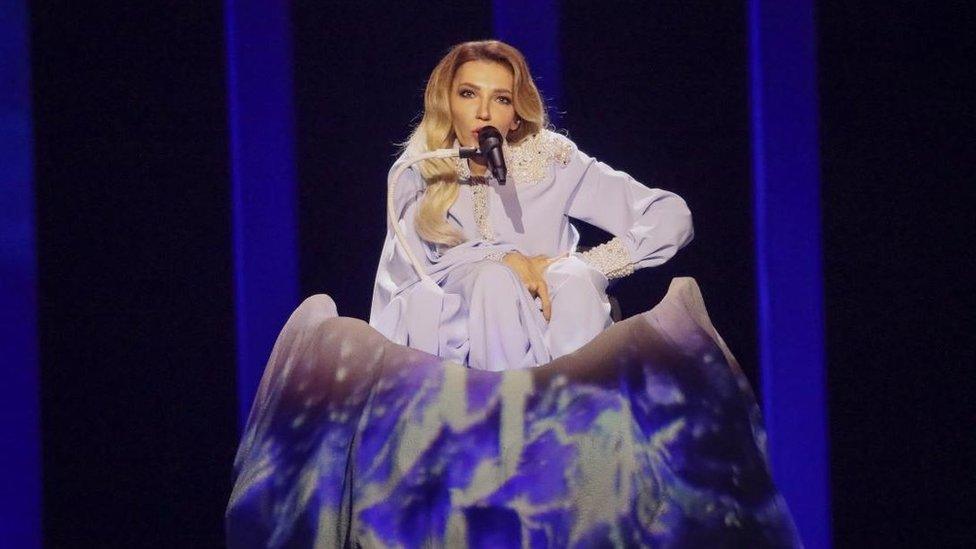
- Published9 May 2018
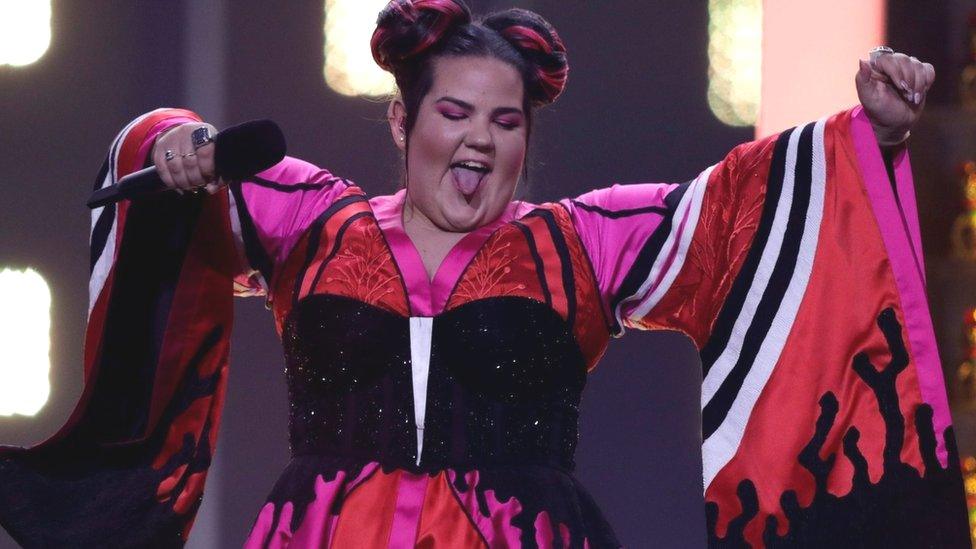
- Published10 May 2018
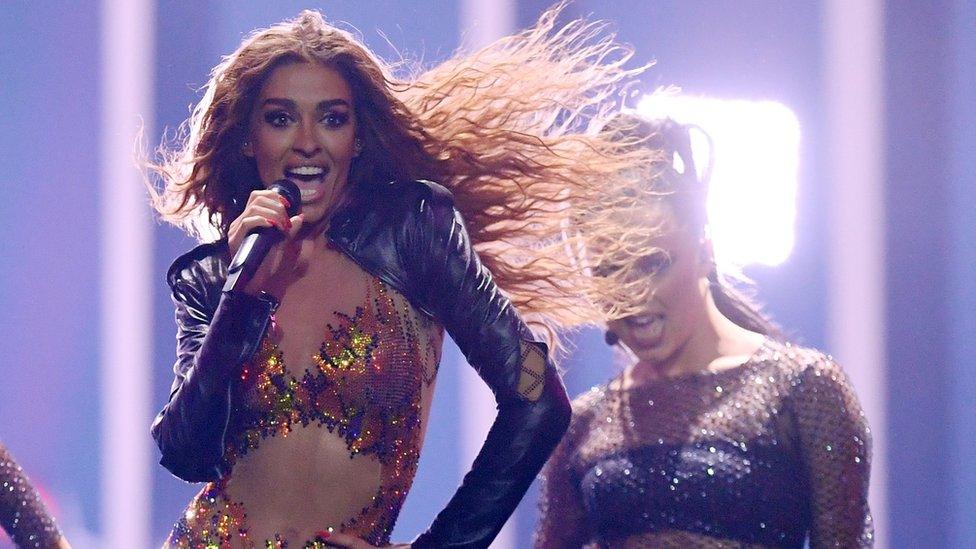
- Published10 May 2018
